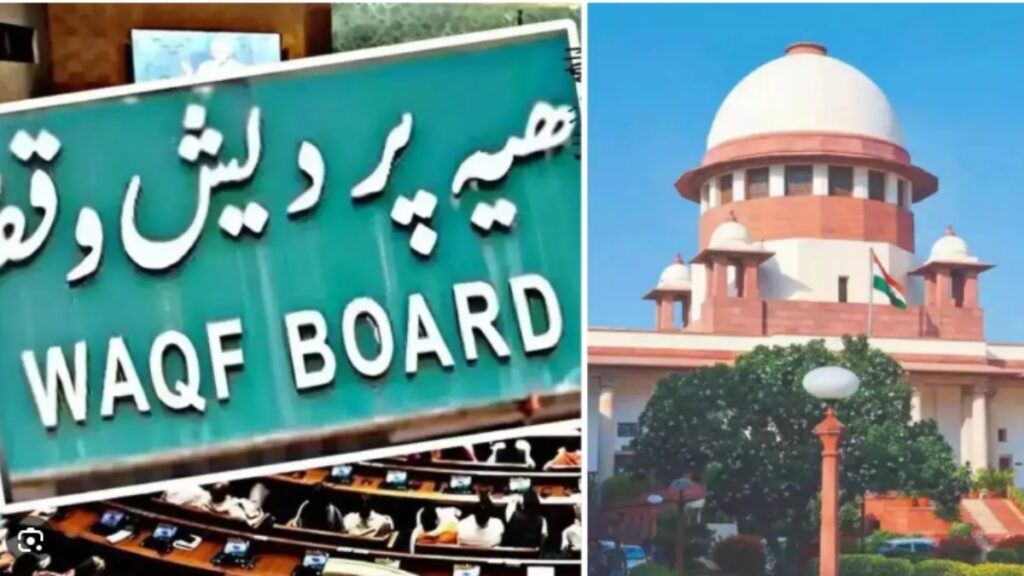Hearing in Supreme Court regarding Waqf law
India’s Chief Justice BR Gavai said on Tuesday that the laws passed by the Parliament are considered constitutional and the courts cannot interfere unless there is a clear and serious problem. He said this comment while hearing the petitions against the Waqf Amendment Act. The petitions challenging the bench Waqf Amendment Act of Supreme Court Chief Justice BR Gavai and Justice AG Christ were hearing on Tuesday, 20 May, which was made a law last month.
Learn what the court said in 10 points?
The Central Government urged the Supreme Court to limit the hearing on the petitions challenging the validity of the Waqf (Amendment) Act to three issues, including the rights of boards to dig the Waqf properties announced by the ‘Court, User and Deed’. Senior advocates Kapil Sibal and Abhishek Singhvi, appearing on behalf of the petitioners challenging the constitutionality of the Waqf (Amendment) Act, protested against the argument of the Center, saying that the important law cannot be heard in pieces.
In the court, Kapil Sibal reiterated that the purpose of the law is to seize Waqf properties, Chief Justice Gawai replied, “The law passed by Parliament has a notion of constitutionality. The courts cannot interfere until a clear case is formed, especially in the current scenario, we do not need to say much.”
CJI BR Gawai said on Kapil Sibal’s argument- I went to the dargah, the church also went … Everyone has this (offering money). On this, Sibal said- Dargah is another matter, I am talking about mosques, the 2025 law is completely different from the old law. There is a offering in temples but not in mosques. This is the Waqf by user, the Babri Masjid was also similar.
CJI asked- Did the earlier law require registration? Sibal said- Yes .. It was said that it would be registered. CJI asked- As information, we are asking whether the provision of registration of Waqf properties was mandatory under the old law or was it just instructions to do so? Kapil Sibal said- The word ‘Shall’ was used in the old acts. CJI said- It cannot be mandatory to register only using the word ‘shall’.
The CJI said that we are asking whether it was mandatory or necessary to register the property declared as a Waqf under the relevant time Acts? Kapil Sibal said that registration of Waqf property was mandatory in all the amendments made in the Waqf Act after 1954.
The court asked- Whether registration in Waqf by user was also mandatory. On this, Kapil Sibal said-yes. Then the court said- So you are saying that before 1954, registration of Waqf by the user was not necessary and it became necessary after 1954. On this, Sibal said- there is some confusion about this, it can be 1923.
The Chief Justice said- there is a lot of pressure, not only on us but also there is a lot of pressure on you. The Supreme Court told Sibal that we would file your plea that registration under the Old Act was required, but there was no provision for what would happen if not done, so nothing was going to happen if the registration was not done.
After hearing the arguments of Kapil Sibal, CJI BR Gawai said- A temple in Khajuraho is under the patronage of the Archaeological Department, yet people can go there and worship. On this, Sibal said- The new law says that if any property is preserved, then it cannot be a waqf.
The CJI asked- does it take away your right to follow your religion? Can you not go there and pray? Sibal said- Yes, this law states that Waqf property is considered canceled. The Supreme Court asked him again- does it take away your right to follow religion?
CJI said- I visited an ASI protected temple; I saw that devotees can go there and pray, so will such a declaration take away your right to pray? Sibal- If you say that Waqf recognition is canceled, then it is no longer a property waqf. I say that this provision is a violation of Article 25. The court records that the petitioners have said that this law violates Article 25 of the Constitution and will be taken away from citizens to continue their religious practices.
Latest india news
